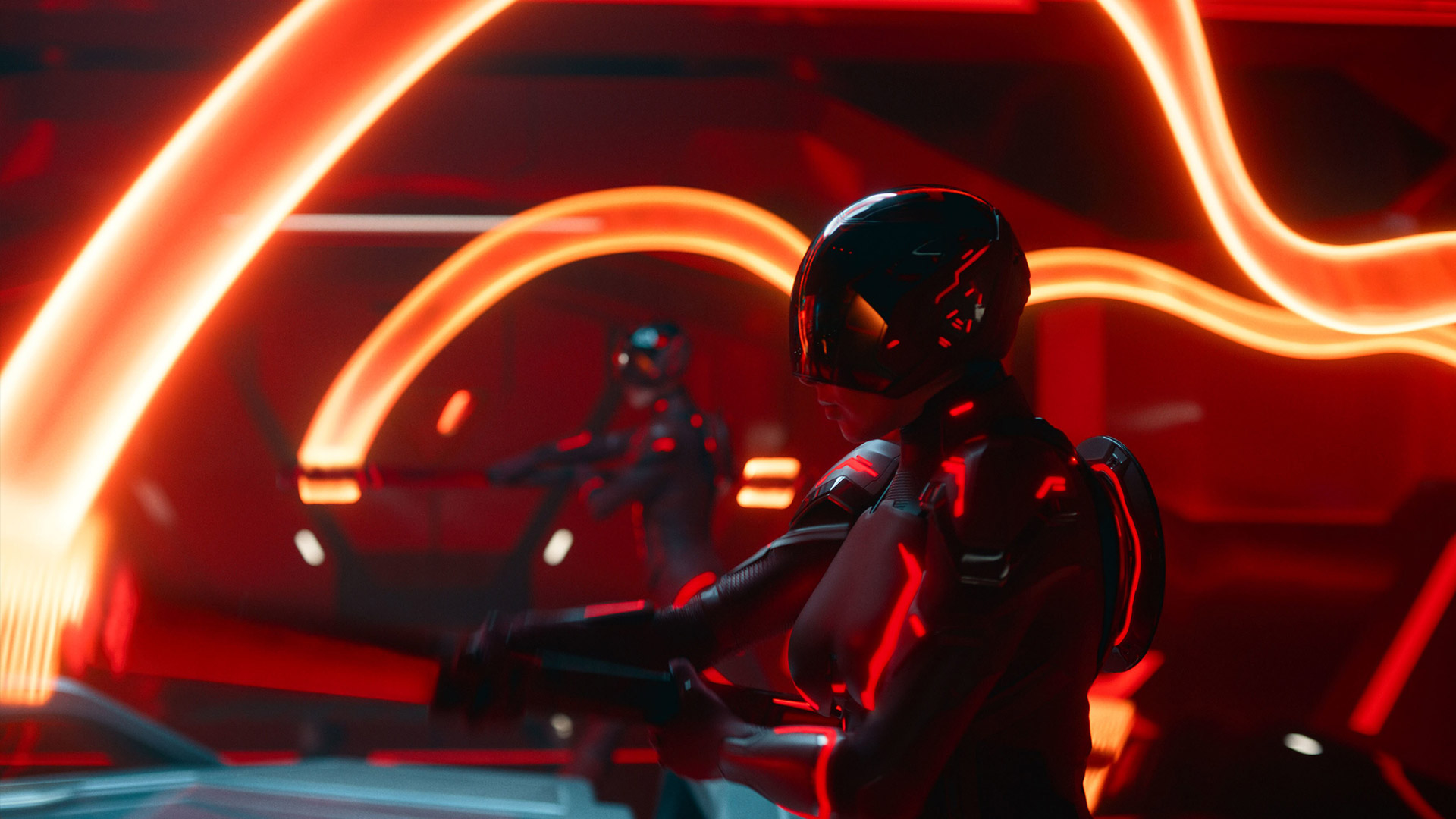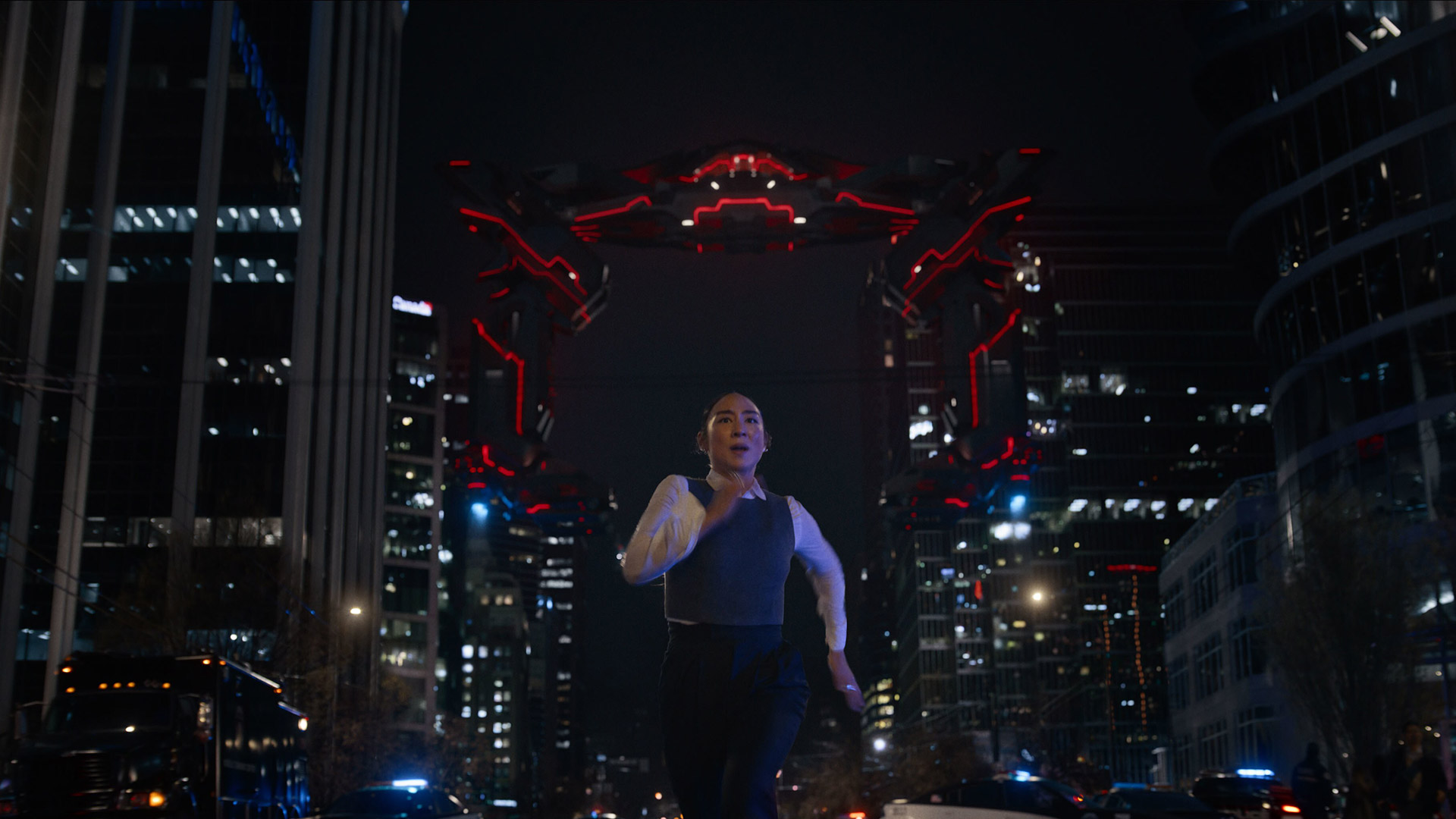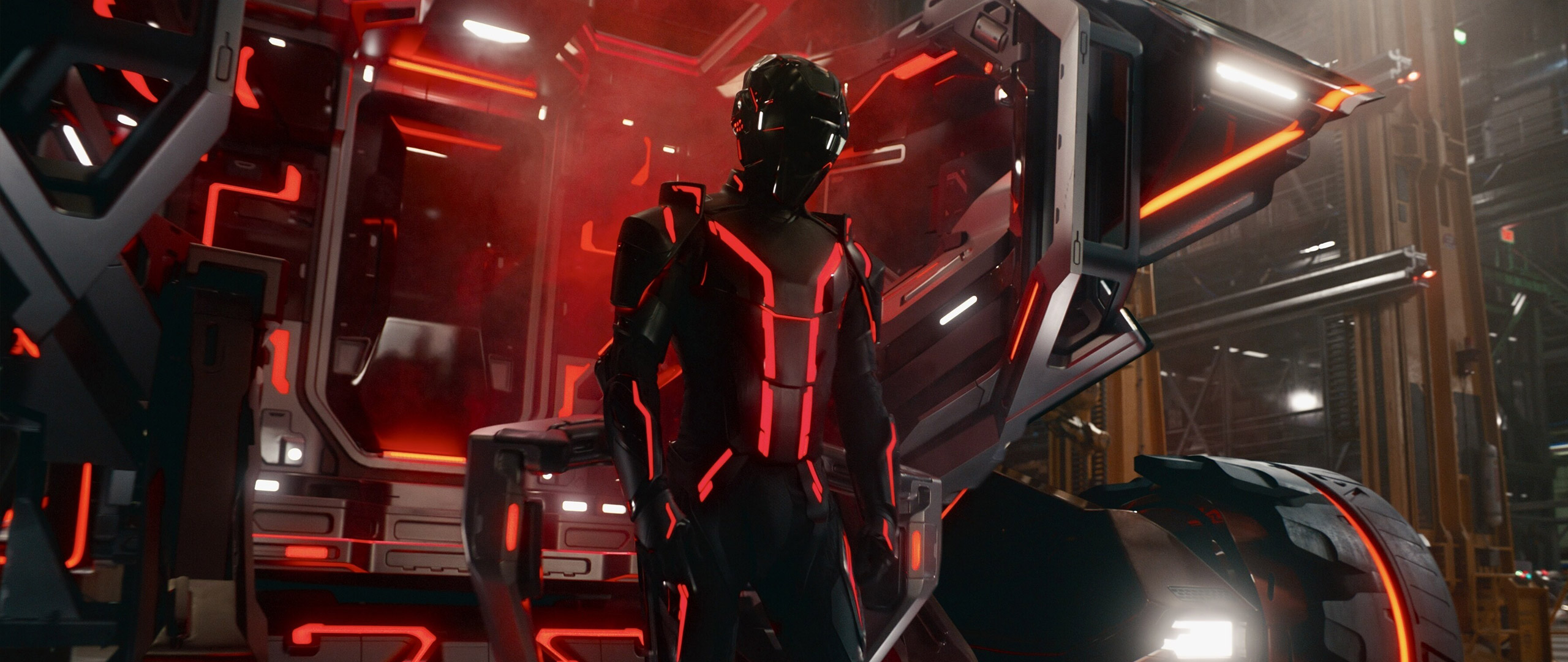TechRadar Verdict
Tron: Ares honors Steven Lisberger’s pioneering digital universe while steering it towards a bold new frontier. This third chapter in the sci-fi franchise blurs the line between the digital and real worlds, exploring the idea of what it means to be human in the age of AI.
Pros
- +
Stylishly expands the iconic Tron aesthetic
- +
Seamlessly merges nostalgia with a new storyline
Cons
- -
Heavy-handed dialogue and symbolism
- -
Thin character relationships
Why you can trust TechRadar
Steven Lisberger’s dormant digital mecca is finally being rebooted for the big screen, with director Joachim Rønning (Pirates of the Caribbean: Dead Men Tell No Tales; Kon-Tiki) crafting a sequel that takes us back inside the neon-washed virtual world known as the Grid. Picking up the baton from Joseph Kosinski’s Tron: Legacy more than a decade after that film’s release, Tron: Ares moves the action out of the Grid and into the real world.
This ambitious shift takes the franchise in a new direction, which Rønning manages to do while honoring the film series’ style and tone, peppering the movie with numerous references that eagle-eyed fans will pick up on. Just like the second installment, Tron: Ares opens with a quick flash of newsreels that establish a futuristic setting where two tech titans, ENCOM and Dillinger Systems, are competing to find the long lost ‘Permanence Code’, a technology that could enable digital life to exist in the real world.
From the beginning, it’s clear that Tron: Ares is setting out a bold new direction for the franchise. It flips the original premise, so rather than a human entering the Grid, a program enters the real world, raising timely questions about AI’s next advancements and the nature of human morality.
Jared Leto’s (Requiem for a Dream; Dallas Buyers Club) titular Ares is a self-learning AI known as the Master Control Program. Like his mythological namesake, Ares is built as a security protocol, so it’s fitting when we’re introduced to him during a combat training montage inside the Dillinger Grid. Keeping in line with the original movie, Dillinger is the same corporate antagonist in this latest chapter.
In the original movie Dillinger Systems was owned by the nefarious Ed Dillinger, who was played by David Warner. Dillinger’s son now calls the shots, with Evan Peters (X-Men: Days of Future Past; Monster) replacing Cliian Murphy who previously took on the role in Tron: Legacy. Dillinger Junior has his sights set on retrieving the code, and in his desperation to beat ENCOM to the punch he invents a technology that can make the programs he’s coded in the Grid temporarily exist in the real world – except that’s not what he tells investors, much to the annoyance of his mother Elisabeth Dillinger, who’s played by Gillian Anderson (The Last King of Scotland; The X-Files).

The limitations of the technology mean that when Ares is finally transmitted into the real world, he can only survive in a temporary physical state for 29 minutes before his new form completely destabilizes, sending him back to the Dillinger Grid. This digital resurrection echoes the story of Frankenstein’s monster, as we watch Ares grapple with what it means to be human throughout the film. Anchoring this moral struggle is a quote from Mary Shelley’s Frankenstein that’s referenced more than once in the dialogue: “Beware, I am fearless and therefore powerful”. But, unlike Frankenstein’s monster, Ares is less a cautionary tale about the perils of unchecked experimentation than a mirror for human morality.
Jodie Turner-Smith’s (After Yang; The Agency) Athena, a fellow digital soldier who works for Dillinger, sharpens the movie’s thematic point around humanity. Her robotic obedience stands in stark contrast to Ares’ existential curiosity, and it’s a smart dynamic that works to set them apart when Ares and Athena are sent on a mission to hack into the ENCOM grid. They’re ordered to spy on CEO Eve Kim, who’s played by Greta Lee (Past Lives; The Studio), to see if she’s any closer to getting the ‘Permanence Code’, but the story takes a sharp turn when Ares starts to explore what existing in a permanent physical form could mean for him.
Sign up for breaking news, reviews, opinion, top tech deals, and more.

Created by the genius programmer Kevin Flynn, who’s played by Jeff Bridges (The Big Lebowski; The Old Man), the code is rumored to contain the key to bridging the gap between digital and human realities. It’s this search that also underpins Ares’ desire to understand his new feelings, which becomes the emotional core of the film.
Honoring the original movie’s groundbreaking use of CGI, Tron: Ares uses a mix of physical sets and visual effects (VFX) to give it an edge over Tron: Legacy, which had more of a CGI-heavy video game feel. I found this added another layer of immersion to the ambitious action sequences throughout, as you see Light Cycles cutting across freeways and streets. Visually, it felt like a fever dream in which characters and vehicles from a 1980s arcade game escape into a real-world setting.
Adding to that immersion is an industrial electronic score composed by Trent Reznor and Atticus Ross. The digital synthesizer-heavy soundtrack also features music from Nine Inch Nails, building on Daft Punk’s signature sound in Tron: Legacy and creating a new futuristic beat that the movie matches its rhythm to.

Not everything ties together as seamlessly though. The symbolic references can be heavy-handed, with the dialogue often over explaining (the unnecessary repetition of the Frankenstein story hints at the obvious). The chemistry between Eve and Ares is also nonexistent, often coming across more like the relationship between a scientist and her creation, which given that the themes of the movie are centered around AI and moral evolution would have been absolutely fine, but instead the movie tries to imply a deeper relationship with a throwaway comment at the end of the film. This hints at a budding romance between them that didn’t feel entirely fitting for a sentient AI that’s only just beginning to recognize emotions.
By the time the credits have finished rolling, Rønning sets up a new direction for the sci-fi franchise in a mid-credits cut scene that suggests this won’t be the last of the disgraced tech CEO we see. TRON: Ares may not rewrite the film series’ code the way its predecessor did, but it has an emotional heft and depth, as it does explore some of the biggest questions we have today around our relationship with technology. It by no means answers any of these questions – and to be clear it doesn’t pretend that it’s setting out to do so – making Rønning’s spin at the Tron wheel less about machines being AI gods and more about the flaws within our own creations. It’s ambitious, occasionally obvious, but unmistakably Tron.
Follow TechRadar on Google News and add us as a preferred source to get our expert news, reviews, and opinion in your feeds. Make sure to click the Follow button!
And of course you can also follow TechRadar on TikTok for news, reviews, unboxings in video form, and get regular updates from us on WhatsApp too.
You might also like
- Wayward is the new traumatic Netflix series you won’t be able to switch off
- I watched Brick on Netflix so you don’t have to – here’s a far superior sci-fi thriller
- I watched all four episodes of Marvel Zombies on Disney+, and I wish it had...

Amelia became the Senior Editor for Home Entertainment at TechRadar in the UK in April 2023. With a background of more than eight years in tech and finance publishing, she's now leading our coverage to bring you a fresh perspective on everything to do with TV and audio. When she's not tinkering with the latest gadgets and gizmos in the ever-evolving world of home entertainment, you’ll find her watching movies, taking pictures and travelling.
You must confirm your public display name before commenting
Please logout and then login again, you will then be prompted to enter your display name.

